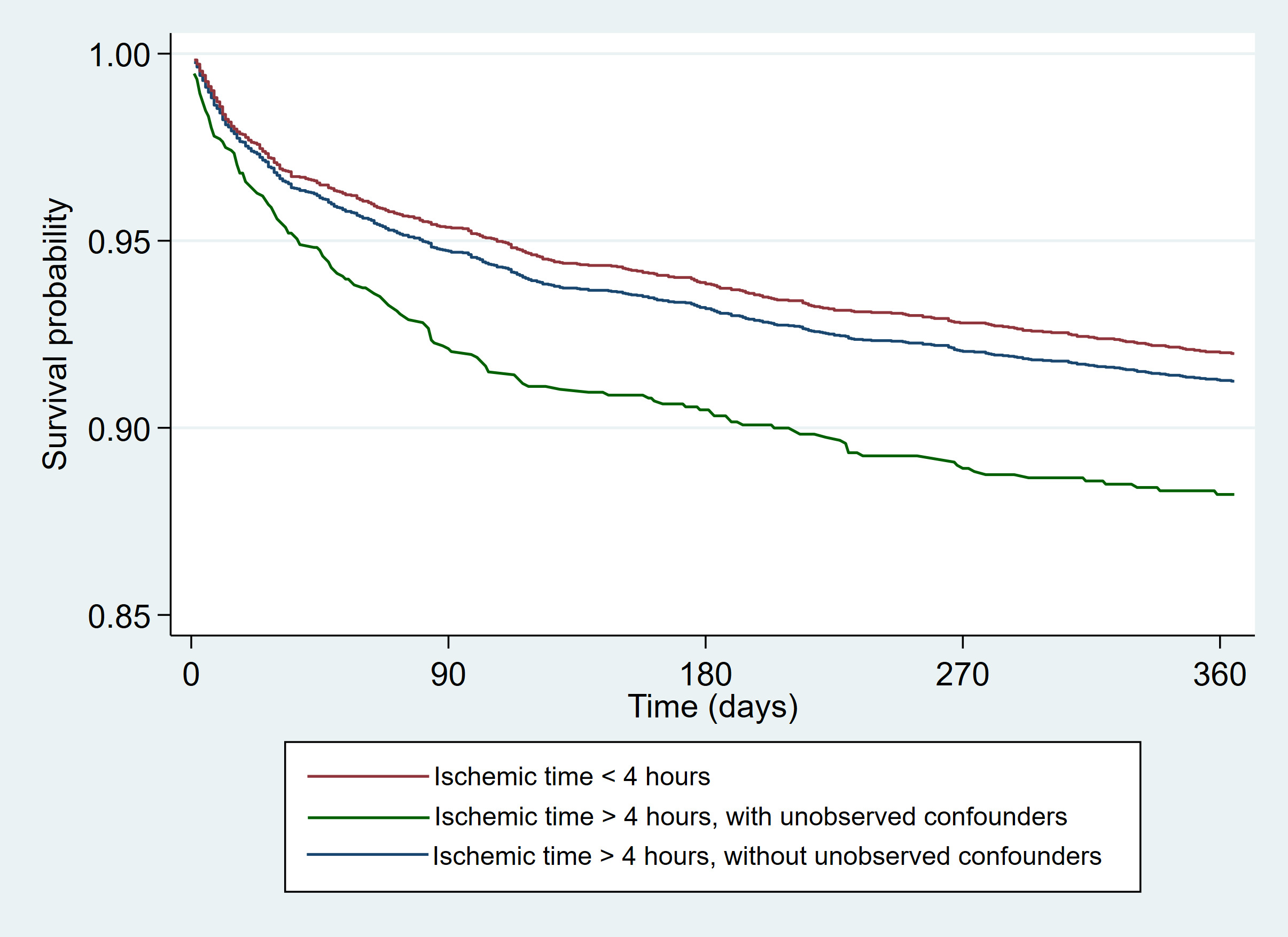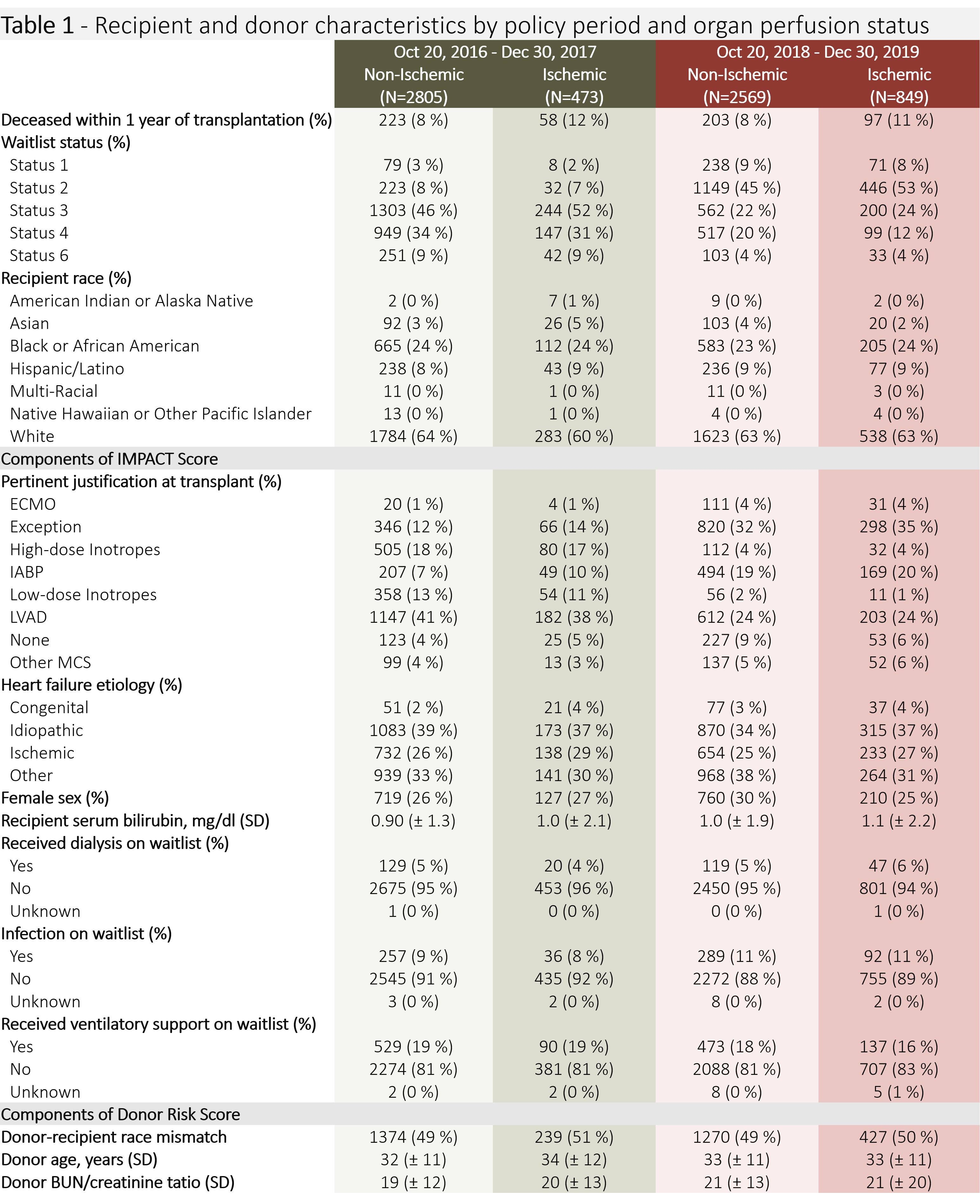Estimating the Effect of Increased Donor Heart Ischemic Time on Post-Transplant Survival Using Instrumental Variables
1Pritzker School of Medicine, University of Chicago, Chicago, IL, 2Department of Medicine, University of Illinois-Chicago, Chicago, IL, 3Department of Medicine, University of Chicago, Chicago, IL
Meeting: 2022 American Transplant Congress
Abstract number: 1121
Keywords: Heart, Ischemia, Organ Selection/Allocation, Survival
Topic: Clinical Science » Heart » 63 - Heart and VADs: All Topics
Session Information
Session Time: 7:00pm-8:00pm
 Presentation Time: 7:00pm-8:00pm
Presentation Time: 7:00pm-8:00pm
Location: Hynes Halls C & D
*Purpose: Isolate the impact of organ ischemic time on post-transplant survival using the recent change in heart allocation policy as a natural experiment.
*Methods: We examined heart transplants occurring prior to (11/01/2016 – 10/31/2017) and after the policy change (11/01/2018 – 10/31/2019). The exposure of our interest is the receipt of a graft with extended (>4 hours) cold ischemic time. Using an instrumental variable (IV) model, we isolated the effect of graft ischemic time on one-year post-transplant mortality by addressing bias from unobserved confounders. We also controlled for observed characteristics of donors and transplant recipients.
*Results: There were N = 3418 recipients in the post-policy period compared with N = 3278 recipients in the pre-policy period. Demographic variables (age, diagnosis, comorbidities) were similar in both cohorts. An additional 10% of heart recipients post-policy change received an organ with > 4 hours ischemic time compared to the pre-policy period (15% pre vs. 25% post, F-value = 116). Without addressing unobserved confounders, 1-year post-transplant survival was significantly worse among those who received graft with prolonged ischemic time (adjusted HR: 1.43, in green, P < 0.001). By using the policy period as an instrument to eliminate unobserved confounders, we found no difference in survival between those whose grafts sustained < 4 hours ischemic time and those whose graft had longer ischemic time solely due to the policy change (adjusted HR: 0.689, in blue, P = 0.73).
*Conclusions: For heart transplant recipients who were “randomized” to grafts with > 4 hours of ischemic time by changes in heart allocation policy, we found no effect on survival within the first year of transplantation.
To cite this abstract in AMA style:
Ran G, Lazenby K, Narang N, Parker WF. Estimating the Effect of Increased Donor Heart Ischemic Time on Post-Transplant Survival Using Instrumental Variables [abstract]. Am J Transplant. 2022; 22 (suppl 3). https://atcmeetingabstracts.com/abstract/estimating-the-effect-of-increased-donor-heart-ischemic-time-on-post-transplant-survival-using-instrumental-variables/. Accessed February 8, 2026.« Back to 2022 American Transplant Congress


